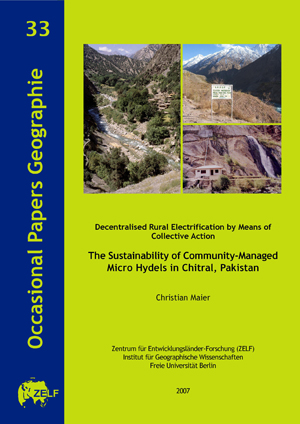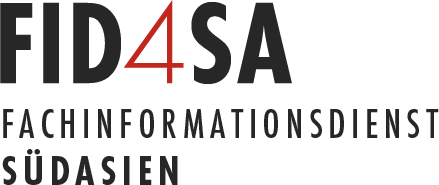Maier, Christian
Decentralised Rural Electrification by Means of Collective Action: The Sustainability of Community-Managed Micro Hydels in Chitral, Pakistan
Programmes for rural electrification, as the most prominent approach to rural energy development, are commonly embedded into rural development policies of developing countries. As in most cases national power utilities are entrusted with the task of rural electrification, these programmes are most often designed as centralised grid extension programmes. These are, however, expensive and, due to scattered villages in rural areas, do not always represent the least-cost solution for electrification. Therefore decentralised electricity and generation through diesel generators or renewable energy (RE) can often be considered as more appropriate and cost-effective. (…)
The most common business model for developing renewable energy mini grid systems is community-based organisations. Regarding the electrified village, such a community managed project requires collective action – “voluntary action taken by a group to achieve common goals.” However, in contrast to a state-owned or private solution, electricity generated in that way has characteristics of common-pool resources (CPRs), whose utilisation would, according to Hardin’s (1968) thesis, in the long term result in a “tragedy” due to over-exploitation by the users.
An example of a decentralised rural electrification project with community-managed electricity generation is the micro hydel programme of the Aga Khan Rural Support Programme (AKRSP) in Chitral, the mountainous northernmost district of the North West Frontier Province (NWFP) in Pakistan. (…)
In order to answer the question, what factors influence or even imperil the sustainability of community-managed micro hydels and to what extent Hardin’s thesis applies to these projects, a three month research internship with AKRSP in Pakistan was carried out. One month was spent in its headquarters in Gilgit, in the Northern Areas, for the collection of secondary data, and two months in the Regional Office in Chitral. Thence 27 micro hydel projects were visited and interviews with persons involved in the management of the projects were conducted.








